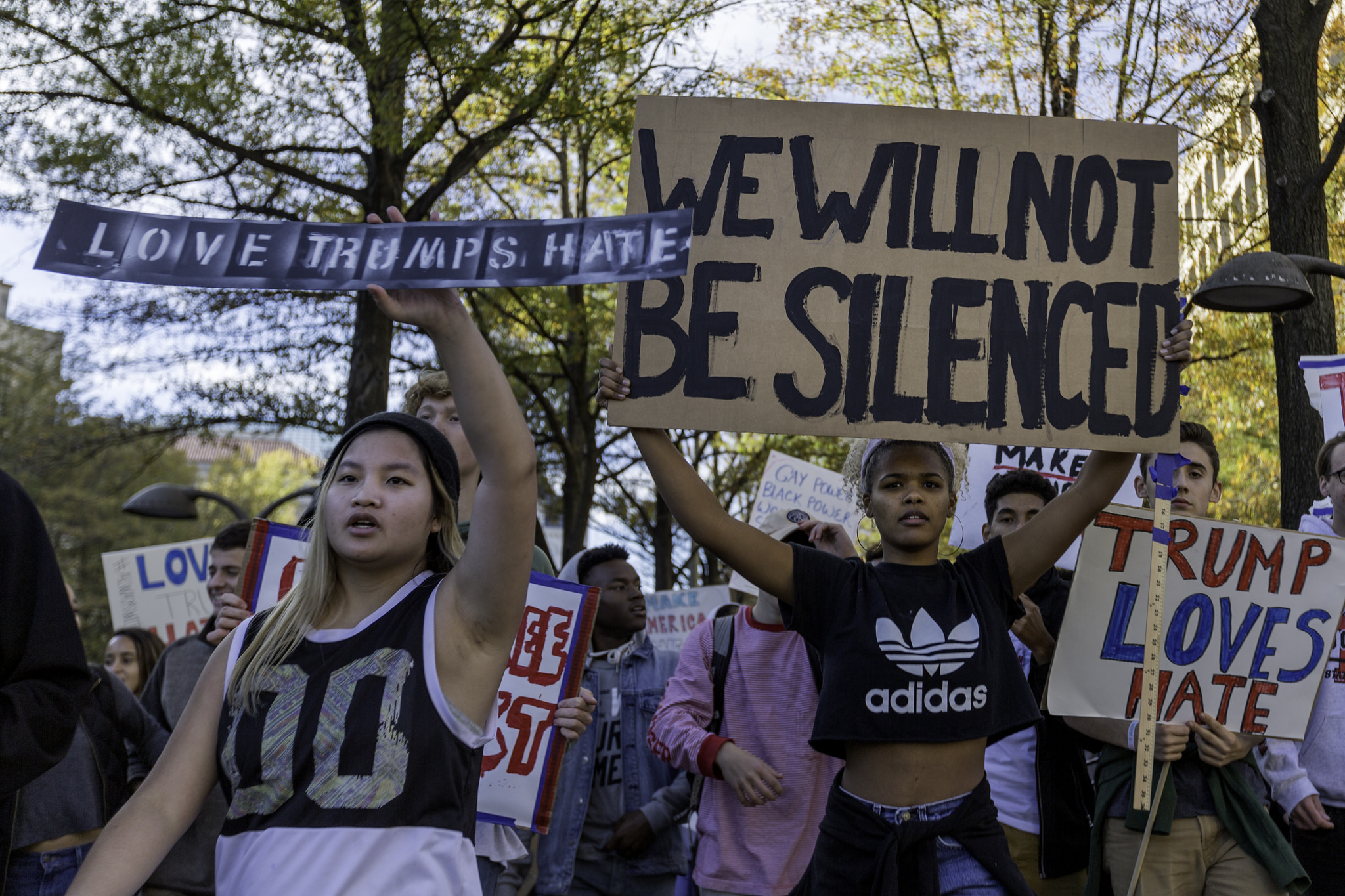Abortion rights, women of color, and LGBTQIA+ people are under attack. Pledge to join us in fighting for gender justice.
8 Actions You Can Take After the Election


It’s safe to say that whether you predicted the outcome of this year’s turbulent election or not, most of us are still reeling from the results. As Donald Trump’s administration looms ever closer, what lies ahead is deeply troubling. But now is the time to collect ourselves and get to work — because there’s not a second to waste. If you’ve been looking for ways to plug in, we’ve compiled a few steps to get you started:
1. Get educated
If you’ve found yourself wondering about what Hillary Clinton meant by “implicit biases” or balked at the term “white privilege,” now is the time to learn what those things really mean — because those things helped put Donald Trump into power. If we want to be champions for justice and true allies to those who will be most affected by the policies likely to be promoted by this administration, we must educate ourselves. Why not take it a step farther and even host a reading group to discuss books like the ones on this list?
2. Be vigilant
Follow what’s happening in the news, not just in Washington, D.C., but in your state. There are already reports of discriminatory legislation being introduced in the states, but there’s also proof that public outcry can succeed in defeating it. It’s up to us to continue to let legislators know that we’re watching their every move and will hold them accountable at election time.
3. Stand up for those being harassed
If you see someone being harassed, try to de-escalate the situation and diffuse the attack. This illustration has some good suggestions for how you can do this that applies not just to Islamophobic incidents, but to any kind of discriminatory harassment you may encounter. There have already been over 400 incidents like this reported since the election — so it’s a good idea to be prepared to step in when you can.
4. Call out and call in your community
We all have that one relative we dread talking to at Thanksgiving (or maybe it’s your whole family) — but we can’t afford to let racism and sexism go unchecked. It is our responsibility to call in our family and friends when we hear or see them acting on their implicit biases. Whether through humor or some hard conversations — these moments are important opportunities to engage our loved ones and hopefully change their minds.
5. Lift up voices and actions of communities different from your own
We have yet to see how the policies of this administration will play out – but chances are they will negatively affect most of us. It’s now more critical than ever to listen to people who have different life experiences than our own — and to take their concerns seriously. Whether sharing an article on your Facebook page or attending a rally, we must take action to make sure are helping to center the voices of communities who are too often erased from the mainstream – like people of color, immigrants, and LGBTQ folks. Uplifting the voices of people who are different from us and pushing for policies to help all people will unite us and make us stronger — and it’s on all of us to make that happen.
6. Call on your legislators
Calling and writing your legislators to oppose bad legislation and nominations has an impact — and we can help you do it. We’ll make sure to keep you updated and involved in the fights to come.
7. Take physical action
Our communities need us now — and while different communities have different needs, here are a few ideas of where to start:
- Join a racial justice group in your community like SURJ or Black Lives Matter
- Attend rallies and protests
- Volunteer with a domestic violence shelter in your area or a rape crisis center.
- Be a clinic escort
- Volunteer professional skills to groups and individuals in need. From using legal skills to help someone process a gender marker change to volunteering graphic design savvy to help promote events and meetings for a local advocacy group, you can help people who lack access to these services.
Want more ideas? Check out this list and this.
8. Donate
Support organizations that are dedicated to fighting back against discriminatory policies. Instead of Christmas gifts, make a donation in honor of someone. Start a Facebook fundraiser for an organization, or hold an in-person fundraising event. Every dollar counts, and we’re in for a long fight.
And while this isn’t an official step, taking care of yourself is a necessary part of activism. The fight ahead will be long, and hard — and we can’t let fatigue or despondency take us out. Make time to recharge and refuel.
Don’t worry — we’ll be here, fighting with you at every step.
